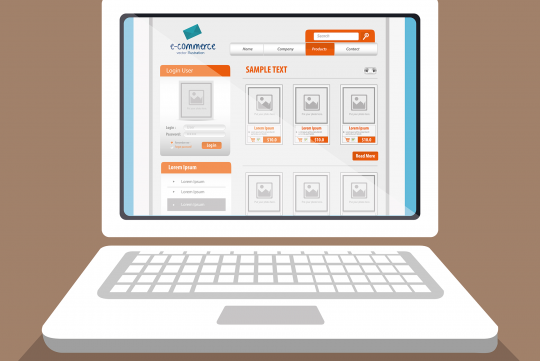Affiliate Marketing Basics
Before you can begin affiliate marketing, you need to know what it is and, more importantly, decide whether it is for you or not

There are many benefits to becoming an affiliate marketer, but the effort required in the beginning can be off-putting for some.
But for those willing to put the work in, affiliate marketing opens up a life of freedom – freedom of working hours and freedom of location. Imagine being able to sun yourself on the beach in Bali, all while working part-time hours that suit you.
Others choose to either consciously, or organically over time, build a full-time business with employees, potentially branching out into other, related, digital marketing disciplines such as SEO (Search Engine Optimization) or CRO (Conversion Rate Optimization).
What Is Affiliate Marketing & How Does It Work?
For affiliate marketing to work, there are three essential ingredients required: the customer, the affiliate, and the merchant (or provider). Some may claim there are other elements involved, but at the core of it, these three make up the basis of affiliate marketing.
There are several types of affiliate marketing, from commission-based sales to pays per click, but they all work in the same fundamental way:
The Customer
Customers are the target audience of affiliate marketers; the customer needs to be convinced enough through an affiliate marketer’s efforts to complete the buying cycle with the merchant (or other required action).
Customers are acquired through various avenues, depending on the chosen niche of the affiliate. Organic search (ranking in search engines such as Google) is the most common method used to get the merchant’s product in front of the customer’s eyes.
This requires a working knowledge of SEO and is often combined with ‘paid search,’ i.e. – paid adverts directing customers to your platform (blog, YouTube channel, etc.)
If you are running your platform as an authority within the niche, it is likely you will have built, and be influencing a decent social profile – social pages and groups are a great way to attract repeat custom from interested parties.
The Affiliate
Affiliates act as the middleman between the customer and the merchant, leveraging their platform to close the buying cycle on behalf of the merchant/provider. This doesn’t always involve sales (which is a commission-based affiliate system); instead, it can be paid per click, or data gathering (receiving a fee for each e-mailed acquired.)
Successful affiliate marketers aim to become an authority within their chosen niche, becoming a trustworthy source of information, gaining sales with product reviews and recommendations.
Affiliate marketing appeals to many, and it’s no surprise that there has been an upward trend in affiliate marketers over recent years. Falling prices of technology and ease of access to the internet, combined with the minimal start-up cost of affiliate marketing, has permitted almost anyone to enter the industry.
Becoming an affiliate marketer does, however, hold a reasonable learning curve with marketers required to learn a base level of skill in - SEO, design, marketing techniques, web development, and content creation.
Over time you will find that you excel in some areas more than others, and as your success grows, you will eventually outsource some areas to freelancers and other marketers. Many internet marketers will hire a VA (virtual assistant), someone who monitors your admin remotely for you.
There are many great communities across Facebook, LinkedIn, and other social platforms that regularly feature posts with insider knowledge, hints, and tips. The affiliate marketing community is very co-operative, and various industry experts give away quality, actionable advice on their blogs daily – with many conducting tests/releasing case studies at their own expense.
Affiliate marketing is one of the only industries where it is possible to enter with no prior knowledge or experience and learn everything you need to succeed, with virtually no outlay financially.
The Merchant
In affiliate marketing, the merchant is where you are trying to funnel customer traffic. In most cases, the merchant will be a large eCommerce store but maybe a small independent offering SaaS or training courses.
In some cases, the merchant will pay you for unique clicks through inserted ads and links (PPC – Pay Per Click) or for gathering data, i.e. – paying a set price for every e-mail you collect.
Amazon runs the most extensive affiliate program in the industry, and some estimates have placed their earnings through affiliate marketers at 42% of their total. That equates to $millions every year, and the sector is only growing.
The type of affiliate program you choose will depend entirely on the niche you are in and will most likely change over time. Niche relevant affiliate programs are available, however, and on average offer a better rate of commission.
Still, for many affiliate marketers, Amazon is the best option despite potentially lower rates of commission. Amazon has a high level of trust among potential customers – leading to better conversion rates.
Affiliate marketing is nothing new; marketers and salespeople have been working on a commission basis for decades. However, the way in which we achieve success through inbound marketing has changed significantly.
Types of Affiliate Marketing
As I previously mentioned, there are several types of affiliate programs a marketer can be a part of. Below I have provided a brief overview of each:
PPC - Pay Per Click
PPC affiliate programs typically offer the lowest rate of pay but are one of the easiest ways for affiliates with small platforms to supplement their revenue. PPC works simply – every time a visitor to your website clicks on an inserted link, or banner ad, the merchant pays you a small fee.
This type of affiliate program means the marketer gets paid whether the customer purchases a product or not and is simply a way for the merchant to funnel relevant traffic to their site.
PPP – Pay Per Performance
Pay per performance model is the most common type of affiliate program. Essentially the merchant only pays the affiliate when a referral leads to action.
For most affiliates, this is when the customer completes a sale with the merchant and is the same type of affiliate program run by Amazon Associates, Walmart Affiliate and other large eCommerce stores.
Some marketers also refer to this as PPS – Pay Per Sale.
For tenacious marketers, performance-based affiliate models can be very profitable as they usually hold higher rates of commission.
PPL – Pay For Lead
This type of affiliate program is based on gathering data, often used in the finance and insurance sector. The required action will change depending on the company, but at its core, every time you collect an e-mail, phone number, or have the customer complete a form, you will receive a fixed amount of compensation for each one.
Why Become an Affiliate Marketer?
There are many pros to being an affiliate marketer, it’s why I became one and the reason thousands of people around the world start their affiliate journey every year. Not only is there great earning potential, but you can be your own boss, and it allows you to make a life rather than make a living.

It’s why I have listed some of my favorite things about affiliate marketing below:
Low upfront investment
Unlike brick and mortar businesses, there is no need to invest in retail space or stock. The initial investment required to become an affiliate marketer is negligible if you already have a laptop and an internet connection; you’re basically there.
Most of the affiliate marketing tools you need are available for free or a few dollars only, and information is readily available online, the most significant cost is the time that you invest.
Personal responsibility – you get out what you put in
For some, this may be a con, but for anyone with a good work ethic, this is the greatest thing about affiliate marketing. Putting in the work always yields results, investing the time to learn the correct methods and techniques, then applying them will always have a positive outcome.
Not only that, but for people who prefer their own company, affiliate marketing doesn’t require you to work in a busy office environment with all the pitfalls that can bring.
And when growth inevitably comes, a lot of the extra work can be outsourced.
No need to stock product
Starting affiliate marketing doesn’t require you to create any product of your own or stock product for anyone else.
Not only does this eliminate the level of initial investment, but since all final transactions are between the customer and the merchant, you have no long-term involvement beyond referring the customer.
Passive earning potential
For as long as you have an maintain your affiliate platform, you will earn money. The initial time investment can be substantial, but once a platform is performing for you, it requires less and less time to maintain.
Similar to buying a house or office complex and renting it out to tenants, it requires very little extra investment from the owner besides maintenance.
No prior knowledge or experience required
In affiliate marketing, the correct mindset and a good work ethic are all that you require in the beginning. Not only that, but prior knowledge of your niche is advantageous but not necessary.
You can sell products in the pet niche without the need to be a qualified veterinarian.
Working freedom
Beyond the earning potential of affiliate marketing, the freedom it offers is probably the most attractive element. Not only can you work hours that suit your lifestyle, but you can do so from anywhere in the world with an internet connection.
The digital nomad life isn’t for everyone, but for anyone seeking that level of freedom, affiliate marketing is a good option.
Summary
I hope this article has been helpful to everyone who has made it to the end, the merits of digital marketing far outweigh the drawbacks. Affiliate marketing is a good option for anyone seeking a change in direction, or to supplement their income from full-time employment.
Let me know in the comments below if you have found this post helpful, or if there is anything you think I have missed! I am always looking to deliver the most relevant content regarding affiliate marketing, and if there are any topics you would like me to cover, don’t hesitate to get in touch.
Share the Love
If you found this post useful, please let others know about it by sharing it.


